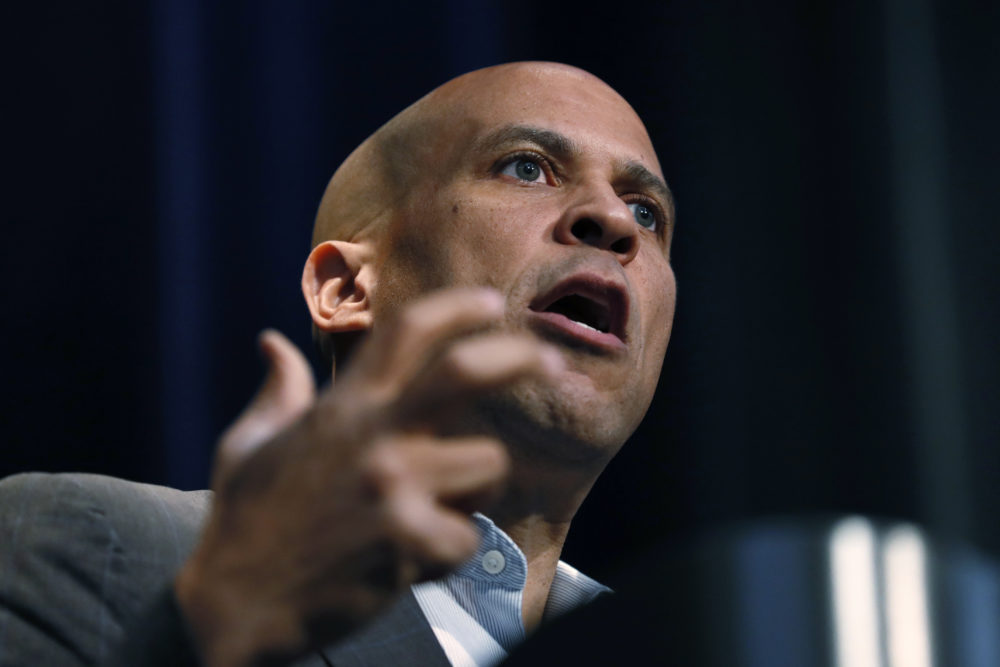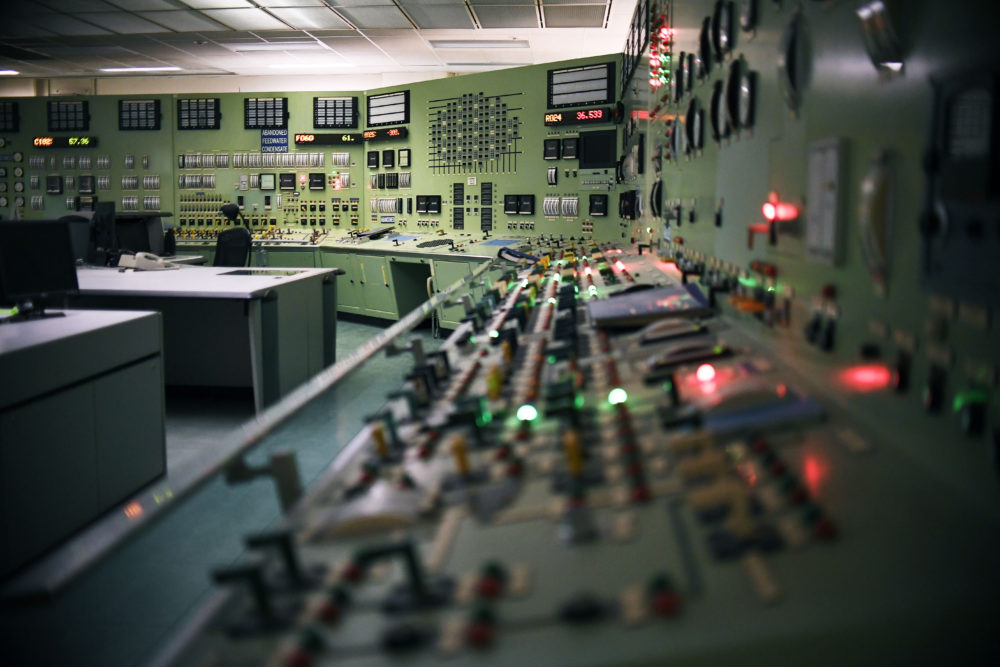Advertisement
Commentary
The Climate Crisis Deserves Everything We've Got. Nuclear Power, Too

The Democratic debate this week follows last week’s seven-hour climate change town hall. That event demonstrated that while progressives trumpet the warming Earth as an “existential threat,” many of them cower at the all-out counter-attack such a crisis demands, too often lacking the courage of their convictions.
It was refreshing to hear a few candidates dissent from what has been liberal orthodoxy by urging us to — tweaking a phrase — grow more nukes.
You don’t have to be a nuclear power investor to believe this energy source is an important part of our toolkit to combat climate change. Sen. Cory Booker and Manhattan techie Andrew Yang earned kudos by taking the pro-nuclear bench. On this one, they are the true progressives and policy wonks — not Bernie Sanders and Elizabeth Warren, both of whom may have seen “The China Syndrome,” a 1979 thriller, a few too many times.
We grieved last week for the Bahamians killed by Hurricane Dorian, which is yet another example of the storms that are trending toward greater intensity due to climate change. The increasing violence of storms and the other ravages of global warming — to food production, human health and national security — are far bigger concerns than Donald Trump’s Sharpie-doctored map of Dorian’s path. (Given this infantile White House, I was surprised they didn’t use crayon.)
The nation’s 59 nuclear plants produce a fifth of the country’s electricity and fully half of its carbon-free power.
Nuclear power doesn’t produce carbon emissions, and at the town hall, Booker laid out the math for why we need it: The nation’s 59 nuclear plants produce a fifth of the country’s electricity and fully half of its carbon-free power. That latter amount is equivalent to the clean electricity we get from all renewable sources and hydropower put together. Aside from the occasional plant decommissioning, nuclear power isn’t going away. We must balance the risks of nuclear power against the wreckage of climate change.
When Vermont Yankee closed five years ago, New England’s energy emissions, which had been dropping, increased 5%, adding to our “existential threat.” In my view, Sanders gets points off for saying he would deny safe nuclear plants’ license renewals as president; he should know better from his home-state experience. Warren is less extreme in her opposition to nuclear, but mushier, pledging to phase out nukes while embracing former candidate Governor Jay Inslee’s lauded climate change plan. That plan, notably, leaves space for nuclear.

Some might say that stomaching the continued operation of these 59 nuclear plants doesn’t mean we have to build more. They forget the extraordinarily tight clock we’re racing to slash greenhouse gas emissions before big consequences become unavoidable. Faced with that reality, Booker and Yang would subsidize research into newer, more affordable nuclear technologies. Yang’s bet is on new reactor technology using either fusion or thorium, the latter producing less waste than current reactors, and which remains radioactive for less long — hundreds of years, rather than thousands. (Joe Biden also supports research into better nuclear technologies, while Sen. Amy Klobuchar has said she is against phasing out nuclear power.)
True, these emerging nuclear technologies are years away from development and affordability. But that’s partially true for other clean technologies too (we’re researching sufficiently powerful solar batteries for when the sun isn’t shining, for example). All the more reason to fast-track study of all these energy sources, nuclear included.
Another Democrat, President John F. Kennedy, committed the U.S. to a moonshot when that was a pipedream. If we could spend so many research dollars to leave the planet, saving it deserves no less.
Dithering over nuclear power is another case of fiddling while Earth burns.
We know the GOP disses climate science. Democrats should take their cue from the venerable Union of Concerned Scientists, which refuses to rule out nuclear. The group is not unaware of the potential hazards posed, but offers ways to insure against both catastrophic accidents and terrorist attacks on nuclear plants.
Those problems are less technological and logistical than political: Federal watchdogs haven’t always been attentive enough to safety. That makes it doubly vital to vote out the incumbent administration, which has fumbled in trying to revive nuclear power, in part by marrying research spending (smart) with attempted regulatory rollbacks (dumb).
When the president’s version of climate change is a conspiracy theory involving Chinese hoaxes, why should he sweat the details?
Dithering over nuclear power is another case of fiddling while Earth burns. Along with renewables, building a green lean into our public works and a carbon tax, nuclear power — with safeguards — has to be part of the mix. In a Democratic field whose agreements dwarf their disputes, nuclear is the rare issue that, if debate moderators raise it, could illuminate substantive differences.
